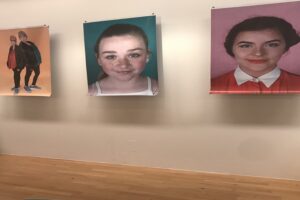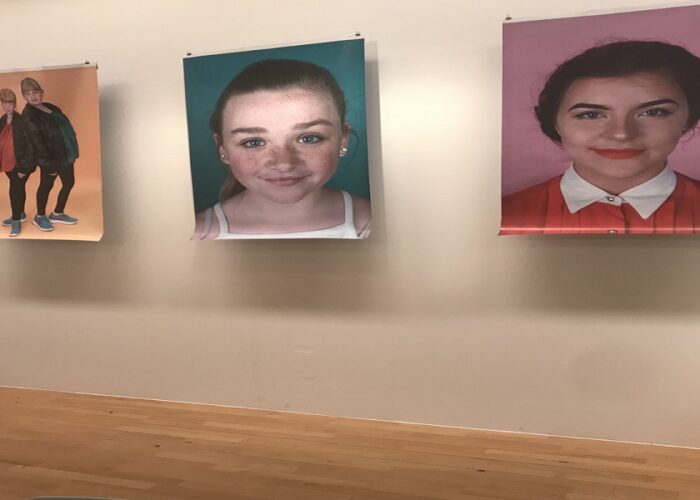
The lives of Irish women are being celebrated at a new exhibition which has opened in Liverpool this week.
‘In:Visible Women’ is being staged at Tate Exchange and aims to, “tell the stories of women often forgotten by history and society through art, music and academics”.
It links in with Liverpool Irish Festival, which will run from October 17th to 27th, which is also the date until which it stays open to the public.
The exhibition started in 2017 when there were big social changes happening which directly affected women in and from Ireland, as well as those of Irish descent.
The bodies of hundreds of babies had just been discovered at the site of a former mother and baby home in Tuam, County Galway, and Irish people were taking steps towards repealing the eighth amendment, which would eventually decriminalise abortion in Ireland.
Twitter: Aoife Monahan
Speaking to Emma Smith after a successful first day of In:Visible women in @tateliverpool @JMUJournalism @LivIrishFest pic.twitter.com/CVonireKRU
— Aoife Monahan (@AoifeMonahan6) October 14, 2019
Emma Smith, Director of Liverpool Irish Festival, spoke to JMU Journalism about how the idea has developed.
She said: “We spoke with Tate about wanting to grow In:Visible women. We’ve extended In:Visible Women from being a trail through our programme and a half day talk to being a week-long exhibition.”
Now in its third year, In:Visible Women will visit a different theme each day, including stories from influential females who have shaped Irish history abroad.
The pilot themes included dual-heritage, looking at Black and Irish, Chinese and Irish and mixed-race relationships.
The first day also drew on the Irish Diaspora, with Win Lawlor from Irish Community Care Merseyside discussing the life and stories of emigrants outside Ireland by drawing on her own experiences of growing up in the Wirral with Irish parents who strictly maintained their values from back home.
Organisers are calling for more people who are either Irish or of Irish descent to share their tales.
Emma said: “We’re looking for all kinds of stories, everything from the domestic to the sublime, that involve Irish women and female creativity.”

